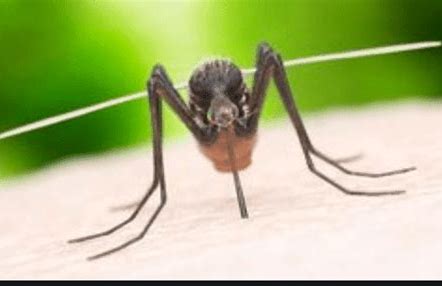New figures from the EEDC show Europe recorded almost as many locally caught cases of dengue in 2022 as it had over the previous 11 years.
Risk of Mosquito-Borne Diseases Rising in Europe, Health Agency Says


Mosquitoes that carry viruses like dengue, zika, and chikungunya have moved into new parts of Europe, increasing the risk of illness, the European Centre for Disease Prevention and Control (ECDC) warned Thursday.
According to new figures from the health agency, Europe recorded almost as many locally caught cases of dengue in 2022 as it had over the previous 11 years.
There were 71 cases of the disease – which generally causes fever and muscle pain but can be more severe and even sometimes fatal – last year, mainly in France. Between 2010 and 2021, there were 74 cases.
The ECDC warned at a press conference Thursday that there is an increasing risk of a number of mosquito-borne diseases in Europe, including dengue, zika, chikungunya, and West Nile virus, linked to the changing climate and the spread of mosquitoes carrying the viruses.
It said more frequent heatwaves and flooding as well as longer, warmer summers have created more favourable conditions for the bugs. It also warned that without better measures to control and protect against mosquitoes, more illnesses and deaths from mosquito-borne diseases are likely.
“If this continues, we can expect to see more cases and possibly deaths from diseases such as dengue, chikungunya, and West Nile fever,” ECDC’s director Andrea Ammon said. “Efforts need to focus on ways to control mosquito populations, enhancing surveillance and enforcing personal protective measures.”
The agency said the Aedes albopictus mosquito, which spreads chikungunya and dengue, “established” itself this year in 13 European countries – meaning it has developed a self-sustaining population that is reproducing – compared with eight European countries 10 years ago. It added the mosquito specie was moving further north and west in Europe.
Aedes aegypti, which spreads diseases like dengue, yellow fever, and chikungunya, became established in Cyprus last year and may continue to spread to other countries, the ECDC also said.
It noted that while the rates of some mosquito-borne diseases in Europe, such as malaria and zika, have not risen dramatically in recent years or even fallen slightly, others have seen a “striking” rise, particularly dengue.
Dengue rates are rising globally. This year, the disease was found in Sudan’s capital Khartoum for the first time, and Peru recently declared a state of emergency in most regions due to a surge in cases.
The World Health Organization warned Wednesday about a potential further rise in infections due to the El Nino weather event impacting weather patterns worldwide.
The ECDC says it is “essential” that healthcare workers and the public have a greater awareness of the different diseases transmitted by mosquitoes.

 বাংলা
বাংলা  Spanish
Spanish  Arabic
Arabic  French
French  Chinese
Chinese 
